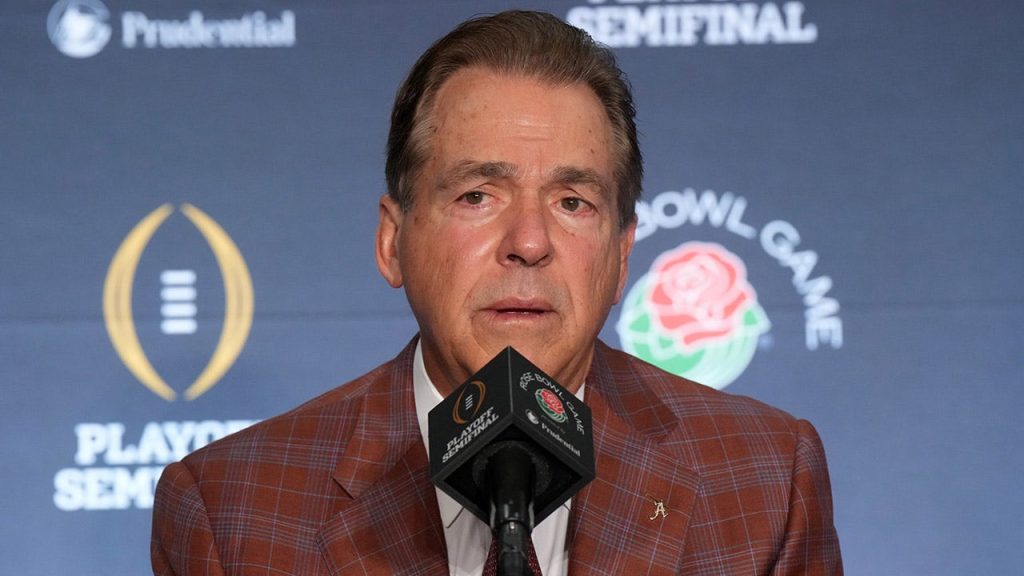Legendary college football coach Nick Saban surprised the sports world by announcing his retirement after winning six national championships in 17 seasons with the Alabama Crimson Tide. Saban spoke with ESPN’s Paul Finebaum about his decision to step down and the challenges he faced when trying to hire new coaches for his staff. He expressed disappointment in the behavior of his players after their loss to Michigan in the College Football Playoff, citing their lack of sportsmanship and focus on individual gain over team success as contributing factors to his retirement.
Saban highlighted the impact of name, image, and likeness (NIL) on college football, noting that while his team adapted to these changes and found success, he was concerned about the shifting priorities of players and recruits. He mentioned that players were more focused on personal gain and playing time rather than the team’s overall success and development. Saban emphasized the importance of building a program based on teamwork and player development rather than individual financial gain, expressing his concerns about the future direction of college football.
Despite his accomplishments and continued success with the Crimson Tide, Saban felt that the changing landscape of college football and the evolving priorities of players were affecting the core values of his program. He mentioned that players were more concerned about how much money they could make as college athletes rather than focusing on their growth and development as individuals and team players. Saban’s decision to retire was influenced by his belief that the goals and aspirations of players had shifted, leading him to question whether his coaching philosophy was still relevant in the current environment of college football.
In choosing his successor, Saban appointed Kalen DeBoer, who had led the Washington Huskies to the national championship but lost to Michigan in the final. DeBoer’s selection as the new head coach of the Crimson Tide signified a new chapter for the program, as it transitioned from Saban’s leadership to a new era under DeBoer. Saban’s retirement marked the end of an illustrious coaching career that left an indelible mark on college football, with his focus on team success, discipline, and integrity setting a high standard for future generations of coaches and players.
Saban’s decision to retire was not solely based on the team’s performance on the field but also on the values and principles he believed in and instilled in his players. He expressed disappointment in the lack of sportsmanship and professionalism displayed by some of his players after their loss in the College Football Playoff, stating that winning and losing with class were essential components of his program. Saban’s retirement underscored the challenges faced by coaches in navigating the evolving landscape of college football, where the focus on individual success and financial gain has reshaped the priorities of players and programs.
As Saban reflected on his decision to retire, he acknowledged the impact of NIL on college football and the changing dynamics within the sport. He expressed concerns about the emphasis on financial gain over team success and player development, citing the shifting priorities of players and recruits as factors that influenced his retirement. Saban’s legacy as one of the greatest college football coaches of all time was defined by his unwavering commitment to excellence, discipline, and integrity, setting a standard that transcended wins and losses and left a lasting impact on the sport for years to come.


